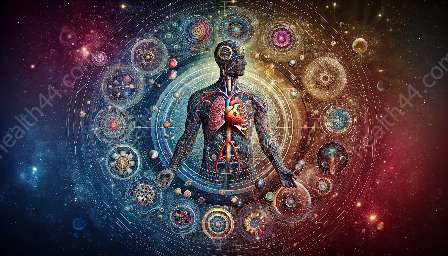Hematology is the fascinating study of blood and its related disorders, playing a crucial role in understanding the physiology of the human body. This topic cluster aims to provide a comprehensive exploration of hematology and its relevance to health education and medical training, offering insights and knowledge about the intricate world of blood and its functions.
The Physiology of Blood
Understanding the physiology of blood is fundamental to comprehending hematology. Blood is a complex fluid that carries out vital functions within the body, including oxygen transport, waste removal, and immune system support. Hematology delves into the various components of blood, such as red blood cells, white blood cells, and platelets, and their roles in maintaining homeostasis and overall health.
Red Blood Cells
Red blood cells, also known as erythrocytes, are responsible for transporting oxygen from the lungs to the body's tissues and removing carbon dioxide. These cells contain hemoglobin, a protein that binds to oxygen, and their production and lifespan are under the regulation of various physiological mechanisms.
White Blood Cells
White blood cells, or leukocytes, form a crucial part of the body's immune system. They defend against infections and foreign substances, playing a key role in maintaining the body's health and protecting it from illness.
Platelets
Platelets, or thrombocytes, are essential for blood clotting and preventing excessive bleeding. They are crucial in hemostasis, the process that stops bleeding when a blood vessel is injured.
Hematological Disorders and Health Education
Understanding hematology is vital in the context of health education, as it allows individuals to comprehend the impact of blood-related disorders on overall well-being. An in-depth knowledge of hematology provides the foundation for recognizing the symptoms, causes, and treatments of various blood disorders, empowering patients and healthcare providers with essential information.
Anemias
Anemias are conditions characterized by a deficiency of red blood cells or hemoglobin, leading to symptoms such as fatigue, weakness, and shortness of breath. Knowledge of the different types of anemias, their causes, and potential treatments is crucial for health education and medical training.
Leukemias
Leukemias are cancers that affect the blood and bone marrow, leading to abnormal production of white blood cells. Understanding the physiology of white blood cells and the factors contributing to leukemia is essential for medical training and educating the public about this condition.
Thrombocytopenia
Thrombocytopenia is a disorder characterized by low platelet counts, leading to an increased risk of bleeding. Educating individuals about the role of platelets in hemostasis and the potential causes of thrombocytopenia is crucial for raising awareness about this condition.
Medical Training in Hematology
Medical training in hematology equips healthcare professionals with the skills and knowledge to diagnose, treat, and manage blood disorders and related conditions. Through comprehensive education in the field of hematology, medical professionals can make informed decisions and provide high-quality care to patients with various hematological disorders.
Blood Transfusion
Understanding the physiology of blood is essential for medical professionals involved in blood transfusions. Hematological knowledge enables healthcare providers to ensure compatibility between donor and recipient blood, reducing the risk of adverse reactions and transfusion-related complications.
Hematologic Oncology
Medical training in hematology also encompasses the study of hematologic oncology, focusing on the diagnosis and treatment of blood cancers such as leukemia, lymphoma, and multiple myeloma. Healthcare professionals specializing in this field play a critical role in providing personalized and effective care to cancer patients.
Coagulation Disorders
Coagulation disorders, such as hemophilia and von Willebrand disease, require specialized knowledge and training for effective management. Medical professionals with expertise in hematology can accurately diagnose these disorders and implement appropriate treatment strategies, improving the quality of life for affected individuals.
Conclusion
Hematology is an indispensable field that bridges the realms of physiology, health education, and medical training. By understanding the intricacies of blood and its related disorders, individuals, healthcare providers, and medical professionals can collaborate in promoting health, preventing diseases, and delivering optimal care to those affected by hematological conditions.


